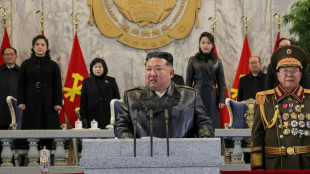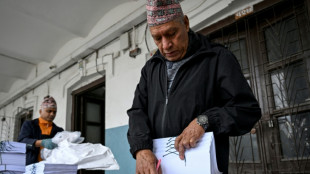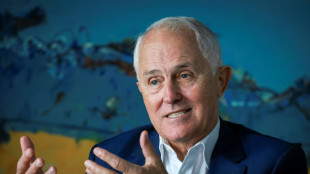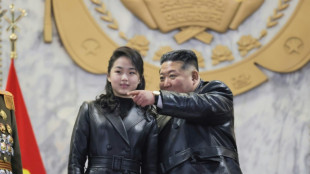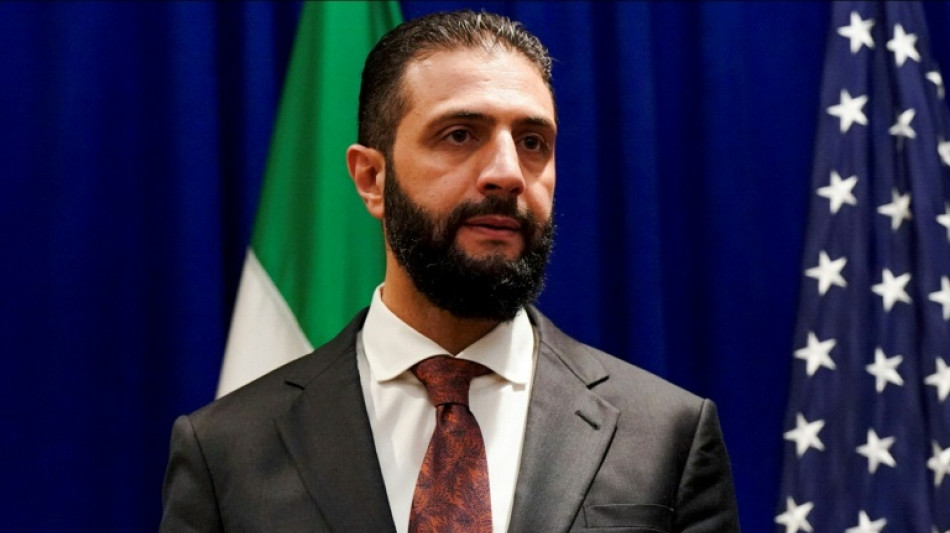
Former jihadist Syrian leader makes unprecedented White House visit

President Ahmed al-Sharaa will become Syria's first leader to pay an official visit to the White House on Monday, a crowning achievement for the ex-jihadist who since taking power has ended his country's isolation.
Sharaa, whose rebel forces ousted longtime ruler Bashar al-Assad late last year, will meet President Donald Trump during the unprecedented visit.
US envoy to Syria Tom Barrack said earlier this month that Sharaa will "hopefully" sign an agreement to join the international US-led alliance against the Islamic State (IS).
The United States plans to establish a military base near Damascus "to coordinate humanitarian aid and observe developments between Syria and Israel", a diplomatic source in Syria told AFP.
Just days before the visit, the United Nations Security Council voted on Thursday to lift sanctions on Sharaa, who until now had needed a UN exemption for every trip abroad.
The resolution was drafted by the US, whose ambassador to the UN Mike Waltz said Sharaa's government was "working hard to fulfil its commitments on countering terrorism and narcotics".
In May, the interim leader met Trump for the first time in Riyadh during the US president's regional tour.
Formerly affiliated with Al-Qaeda, Sharaa's group, Hayat Tahrir al-Sham (HTS), was delisted as a terrorist group by Washington as recently as July.
Since taking power, Syria's new leaders have sought to break from their violent past and present a moderate image more tolerable to ordinary Syrians and foreign powers.
- 'Big statement' -
Sharaa's trip to Washington will be "the first in modern Syrian history for a Syrian president to the White House", historian Sami Moubayed told AFP.
It will also be Sharaa's second visit to the United States after a landmark trip in September, where he became the first Syrian president in decades to address the UN General Assembly.
"Sharaa's visit to the White House is a declaration of a new chapter in US policy on the Middle East," said Nick Heras, an analyst at the New Lines Institute for Strategy and Policy.
"Trump is bringing Sharaa to the White House to make a big statement that Sharaa is not a terrorist anymore," he said.
"The Trump team sees Sharaa as a pragmatic, and importantly pliable, leader who under American and Saudi guidance will secure Syria as a strategic bulwark in the region for decades to come."
Sharaa for his part is expected to seek funds for Syria.
"Sharaa wants Trump's blessing to unlock billions of dollars... both to kickstart the rehabilitation of Syria and to cement his control over the country indefinitely," Heras said.
Reconstruction is one of the most significant challenges facing Syria's new Islamist authorities after 13 long years of brutal civil war.
In October, the World Bank put a "conservative best estimate" of the cost of rebuilding Syria at $216 billion.
- 'Israeli influence' -
A diplomatic source in Syria told AFP that the United States "intends to establish a military base at the Mazzeh military airport near Damascus to coordinate humanitarian aid and observe developments between Syria and Israel".
Another Syrian diplomatic source said "the question of Syria joining the anti-jihadist coalition will be at the top of the agenda" for the White House meeting.
The majority of US troops deployed in Syria are based in areas controlled by Kurdish forces in the north-east.
The Kurdish-led Syrian Democratic Forces (SDF) played a vital role in the fight against the Islamic State group in Syria, which ultimately led to the jihadist organisation's territorial defeat in the country in 2019.
The SDF are currently negotiating their integration into Syria's military.
Trump and Sharaa will also discuss the direct negotiations that Syria and Israel, which remain technically at war, opened after Assad's overthrow.
Trump has expressed hope that Syria will join other Arab countries that have normalised ties with Israel under the so-called Abraham Accords.
In September, Sharaa said he hoped for a security deal to ease tensions with Israel but played down the prospect of recognition.
Since December, Israel has deployed troops in a UN-patrolled buffer zone that separates the countries' forces and has launched hundreds of strikes in Syria. Damascus has not retaliated.
For Heras, "Trump's vision for Syria includes significant Israeli influence over a strategic swath of the country for years to come".
F.M.Buffo--INP

 London
London

 Manchester
Manchester
 Glasgow
Glasgow
 Dublin
Dublin
 Belfast
Belfast
 Washington
Washington
 Denver
Denver
 Atlanta
Atlanta
 Dallas
Dallas
 Houston Texas
Houston Texas
 New Orleans
New Orleans
 El Paso
El Paso
 Phoenix
Phoenix
 Los Angeles
Los Angeles
